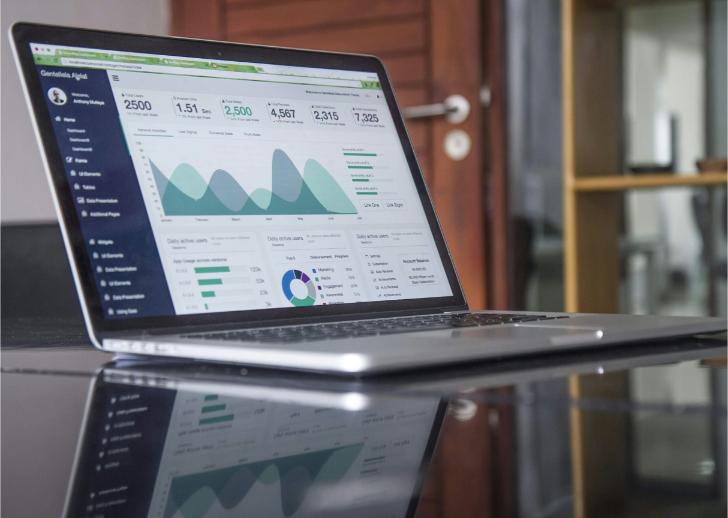While trying to build a professional website, one of the things you must do is to identify the most important pages on a website and find a way to create them for your website.
Identifying and creating these important pages is very crucial because they will boost your credibility as a brand, provide easy access to information on your website while getting you more ROIs, compared to other websites.
Most businesses are losing out of the huge rewards that comes with getting the right pages set up for their website because they have no idea about what to start with.
As someone planning to get the best out of your website, you might be asking, what are these most important pages on a website and how can I get this pages set up on my website?
In this article, you’ll find all your answers as I’ve listed out the key pages you need on your website, why you need them and the content you can include on those pages, in the following paragraphs.
Home Page
Table of Contents
The Home Page is the most important page on a website. It’s the main landing page where everyone gets to see, as soon as they land on your website, using your domain URL.
It is also where you’ll have a summarized version of what your website is all about, displayed in both images, text any other format. Check out an example of a home page here.
There are two kinds of home pages viz; dynamic and static home page.
Dynamic web pages are mostly used by blogs to display the latest blog posts or articles. It is the default page display by all WordPress websites.
A static home page on the other hand is used by most websites to display a summarized version of what a website is all about while linking to the other pages.
Despite it’s importance, some websites may decide they don’t really need a static home page.
This mostly happens with blogs… Especially a personal blog or journal. For such sites, you may not need a static home page as the blog page is automatically set as a dynamic home page for your content display.
The reason you need a dynamic home page for a blog is so that you can easily display your blog posts in a chronological order on the blog..
This is done so that when a visitor gets to your blog, the first thing they will see is your most recent blog posts, instead of a static home page.
While the static home page is most suitable for business websites to display their business, a dynamic page works best for non-business websites and other websites that don’t have a lot of other things to do, apart creating and sharing content.
While designing a home page, you want to keep it light weight. Build it in a way that a user will always want to click through relevant links to explore other pages or sections on your website after landing on the home page.
About Page
The “About Page” is another one of the most important pages on a website. And whether you’re running a blog or business website, you’ll definitely need an “About Page“.
Mostly coming immediately after the home page in the menu section, your About Page is important because it contains all the information about your website.
For most websites, About Page usually includes information you want any first time user to know about your website, like why your website was started, your Core values, Vision, Mission statement etc.
So, while designing your about page, be sure to include these details in a way that’ll put your website in the right light.
PS: Remember your about page also has to be really captivating if you plan to convert your casual scrolling visitors to actual customers…
And of course, this is another place you can use to market yourself, the stuff you do and get your readers to buy into your website and the vision behind it.
Services Page
Services page contains a list of all the services you offer on your website in details. It is also one of the most important pages on every website.
While your home page summarizes what you do, the Services/What we do page gives even more details.
If you’re running an educational website for example, you can use this page to describe the services you provide, mentioning all the important details that will make an interested reader to want to patronize you.

While designing your services page, make it so compelling that a potential client will readily choose you over your competition, after they get to read your page.
No matter the product or services you’re selling on your website, you need to describe it in a very persuasive way that will give you an edge over your competition.
Contact Page
Like the pages we mentioned previously, your “Contact Page is another one of the most important pages on a website.
It is where your potential clients or visitors will get to reach out to you after coming across your website.
Your contact page should include details of how your website users can contact you effortlessly.
Here you’ll want to add contact details like office address, phone numbers, emails and any other contact information you’d want to add.
To further simplify how people get to access you, you might want to include forms like contact forms, quotation at your contact page and then link everything to your central email address.
Although this is not a must have, you may also want to add your social media handles so users can follow or contact you directly via your social media pages.
Product Page
A product page is another essential website pages for businesses and e-commerce websites. It is only necessary for you to add this page, if you’re selling a product on your website.
Although it is recommended you make your products very visible on your website’s home page… It is still important to have a separate products page where you can feature each product on the website.
While designing your products page, be sure to describe and display each product in details, including other things like specifications, pricing etc.
Also, instead of calling it a product page, you can decide to make it like a gallery page where you display your products based on their categories.
If you’re not selling products on your website, this page is not necessary.
FAQ. Page
Recently Frequently Asked Questions AKA FAQ has become one of the most essential pages on websites.
Over time, it has been used by website owners in answering some common questions usually asked by website visitors.
Instead of waiting for a user or prospect to ask you questions about your website directly, you can gather all the popular questions, that’s likely to be asked, including other information they’d like to know; answer and update them on the FAQ page.
With this done, a user with questions can quickly find answers to their questions right on the website, without having to contact you personally.
This is the usefulness that makes FAQ page one of the most important pages on a website.
Testimonial Page
Although testimonials can be displayed on your home page, having a testimonial page on your website helps you display a much more detailed review and testimonials from your clients thus giving you further social boost.
Your testimonial page shows your users what other people are saying based on their experience with you. It is also one of the most important pages on a website.
It could be about your product, services or even the use of your website… Having a testimonial page shows some authenticity and a proof that you’re what you claim to be.
In addition to making your testimonial page stand out with the nice things people say about you may also want to add details about the people giving the testimonials.
This details could include thing like their names, portfolio etc. of the people giving testimonials or just their names, depending on what you and the people giving the testimonial are comfortable with.
Blog
A blog technically is a collection of your posts on the website. It can also be a section of the website. And sometimes a whole website could be a blog.
Although it is one of the most essential pages on most websites, it is not important for all websites.
Where your website is set to display your latest blog posts on the home page, you don’t need to have a separate blog page.
On the other hand, where your website has a home page displaying other contents of the site, you’ll need a blog page to display your posts on the website.
Basically, your blog page should be able to display all your posts on the website including press release etc., chronologically.
So, with a blog page set on your website, you don’t need to set up any other page for other posts formats. Instead, putting the posts on the right category can help you get it displayed appropriately.
Privacy Policy/Terms & Conditions/Cookies Policy
Recently, this page is becoming one of the most important pages on websites.
The reason I’m merging the three pages together is because naturally, most websites usually merge the three pages together…
Others still keep them separate. This can be easily seen in most big companies and organizations’ websites.
And also, you might choose to keep each of them separated based on nature of what your website is all about.
Your privacy policy shows a user how the information you get from them will be used.
While the terms and conditions tells them about the terms that accompanies usage of the website.
In some countries, it is very important you have the Privacy Policy and Terms & Conditions page on your website.
In any case, since the emergence of the GDPR Law in 2016, most websites are increasingly including Privacy Page, Cookies and Terms and Conditions as part of the must have pages on their websites.
So you’ll not want to be left out or bear the risk of non compliance with the GDPR Law.
Final Words
Now, while these are not the only web pages you need on a website, depending on what you want to achieve with your website, you can have more or even a lesser number of pages, than the ones mentioned here.
One thing you must always consider while setting up your website is that certain pages are very important to the success of your website…
Also, for purposes of best practices and to create a great user experience, some of these pages must be put in place on your website.
So, now that you have learned about the most important pages you need on your website, the question is, do you have these pages set up on your website?
Hire our team to design a professional website and build these pages for you without any hassle. Reach out to us here.
Now it’s over to you. How many of these web pages do you have on your website, based on your own specific needs? Drop your comments below.

2 Responses
Great blog explaining the importance of pages on a website. How does it affect if few pages are not there?
Hey Jitin,
It all depends on the kind of website you have. Apart from some of the very fundamental pages like; Home, About, Contact, Blog etc., you really don’t need all these pages on your website.
You’ll have to choose your pages based on the nature of your website and what’s applicable to it.